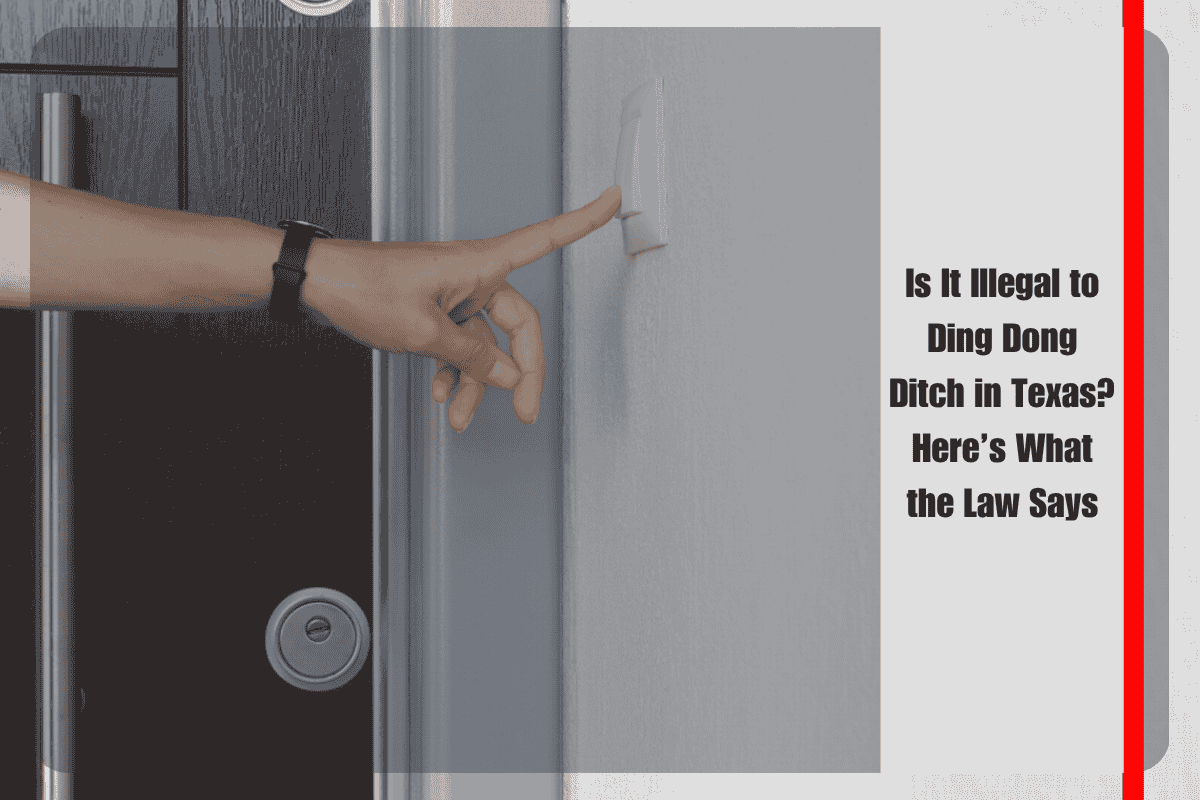In Texas, ding dong ditching—where someone rings a doorbell and runs away before the homeowner answers—is not explicitly outlawed by a specific statute but can be considered illegal under several existing laws, depending on the circumstances. The primary legal concern with ding dong ditching in Texas revolves around trespassing. According to Texas Penal Code Section 30.05, it is illegal to enter someone’s property without their consent. Since ding dong ditching often involves stepping onto private property to ring the doorbell, it can be classified as criminal trespass, especially if the property is gated, marked with “No Trespassing” signs, or if the homeowner has previously warned the individual to stay off the property. Repeated offenses or ignoring warnings can escalate the situation from a mere warning to a misdemeanor charge.
Beyond trespassing, ding dong ditching can also lead to charges of harassment or disorderly conduct if the prank causes distress, fear, or annoyance to the homeowner. Texas law does not excuse behavior simply because it was intended as a prank. If the prank results in emotional distress or is part of a pattern of targeted behavior, it may be treated more seriously under harassment statutes. Furthermore, if the prank involves property damage—such as toilet papering, egging, or other vandalism—additional charges like criminal mischief or even arson (in extreme cases involving fire) could apply, leading to severe penalties including felony charges.
The legal consequences for ding dong ditching in Texas can be significant. A first-time offense might result in a warning, but subsequent violations can lead to a first-degree misdemeanor charge. This misdemeanor is punishable by up to one year in jail, a fine of up to $1,000, and probation. For minors, the juvenile justice system may handle the case differently, but parents can sometimes be held liable for their children’s actions, especially if the prank causes property damage or emotional harm. Additionally, if the prank involves false alarms or swatting—calling emergency services with a fake report—it is a serious criminal offense with potentially severe penalties, including imprisonment.
Texas courts focus heavily on the outcome of the prank rather than the intent behind it. Even if the prank was meant to be harmless fun, causing fear, physical harm, property damage, or significant disruption can lead to criminal charges. For example, trespassing on school grounds or government property during a prank can result in enhanced penalties. Likewise, pranks that escalate to physical assault or threats fall under assault laws, which do not require actual physical injury but only that the victim feared imminent harm.
While ding dong ditching might seem like a harmless childhood prank, in Texas it can be illegal if it involves unauthorized entry onto private property, causes distress, or results in damage. The state’s trespassing laws make it clear that entering someone’s property without permission is punishable, and repeated or damaging pranks can lead to misdemeanor charges or worse. Pranksters should be aware that Texas law does not tolerate behavior that invades privacy, causes fear, or disrupts public peace, regardless of intent. Understanding these legal boundaries is crucial to avoid serious consequences that can include fines, jail time, and a criminal record.
Sources
[1] https://www.lawlegalhub.com/is-it-illegal-to-ding-dong-ditch/
[2] https://www.pumphreylawfirm.com/blog/is-ding-dong-ditching-as-harmless-as-pranksters-think/
[3] https://www.texasdefensefirm.com/blog/smashing-pumpkins-ding-dong-ditching-halloween-become-criminal/
[4] https://www.bryanfagan.com/blog/2025/04/when-pranks-turn-criminal-the-fine-line-between-fun-and-felony-in-texas/
[5] https://texascriminaldefensegroup.com/how-can-pranks-in-texas-get-you-arrested/












